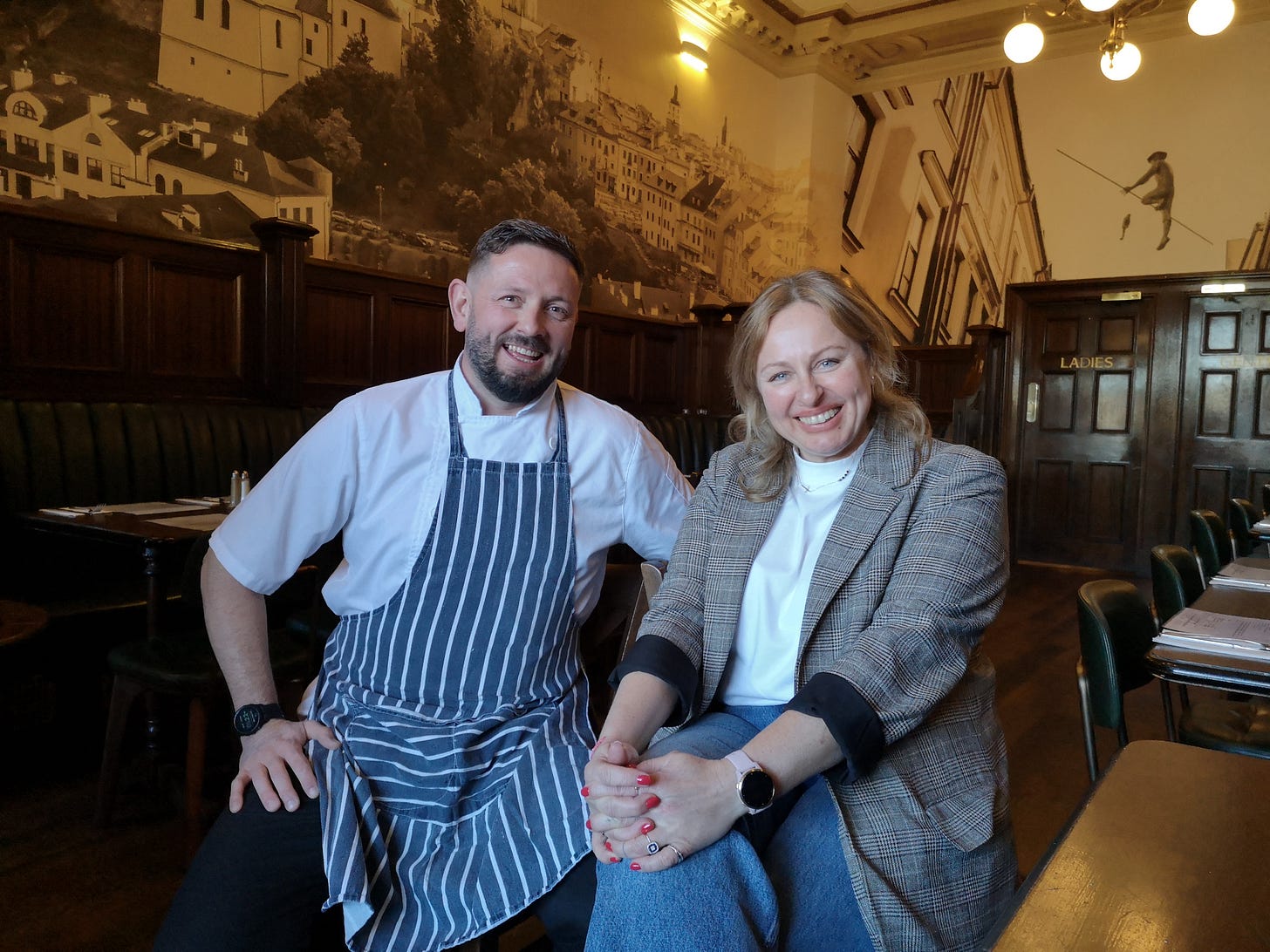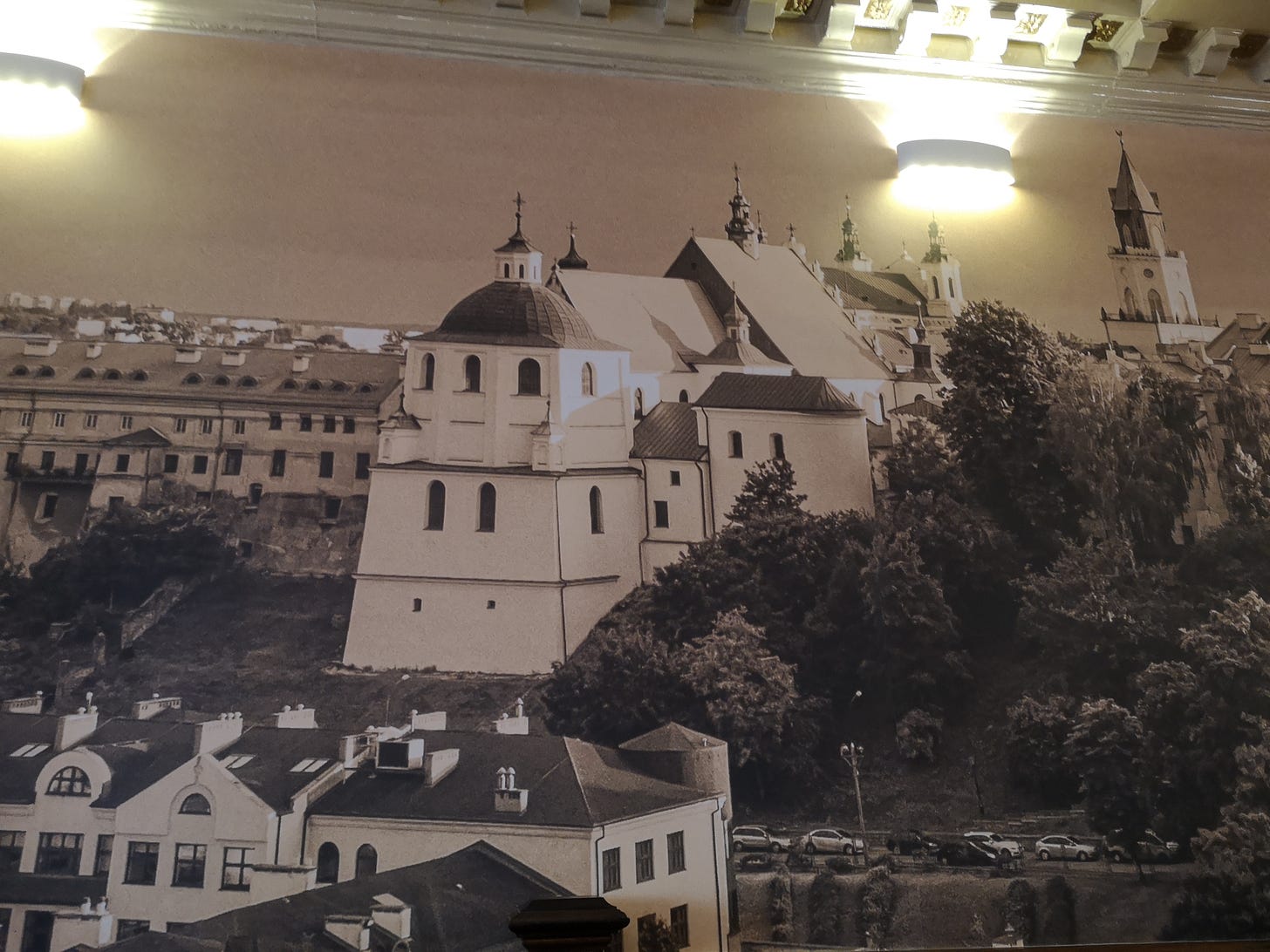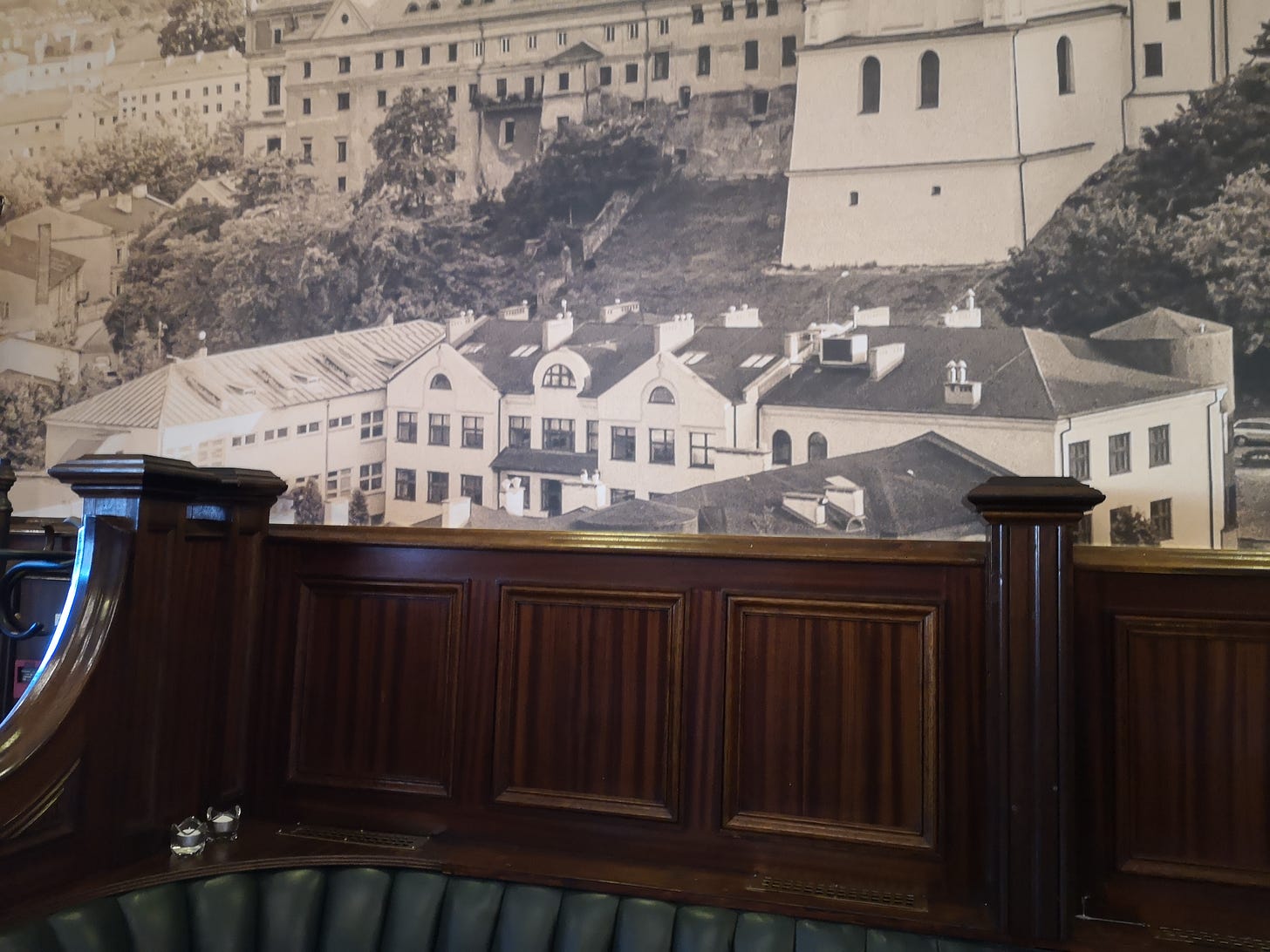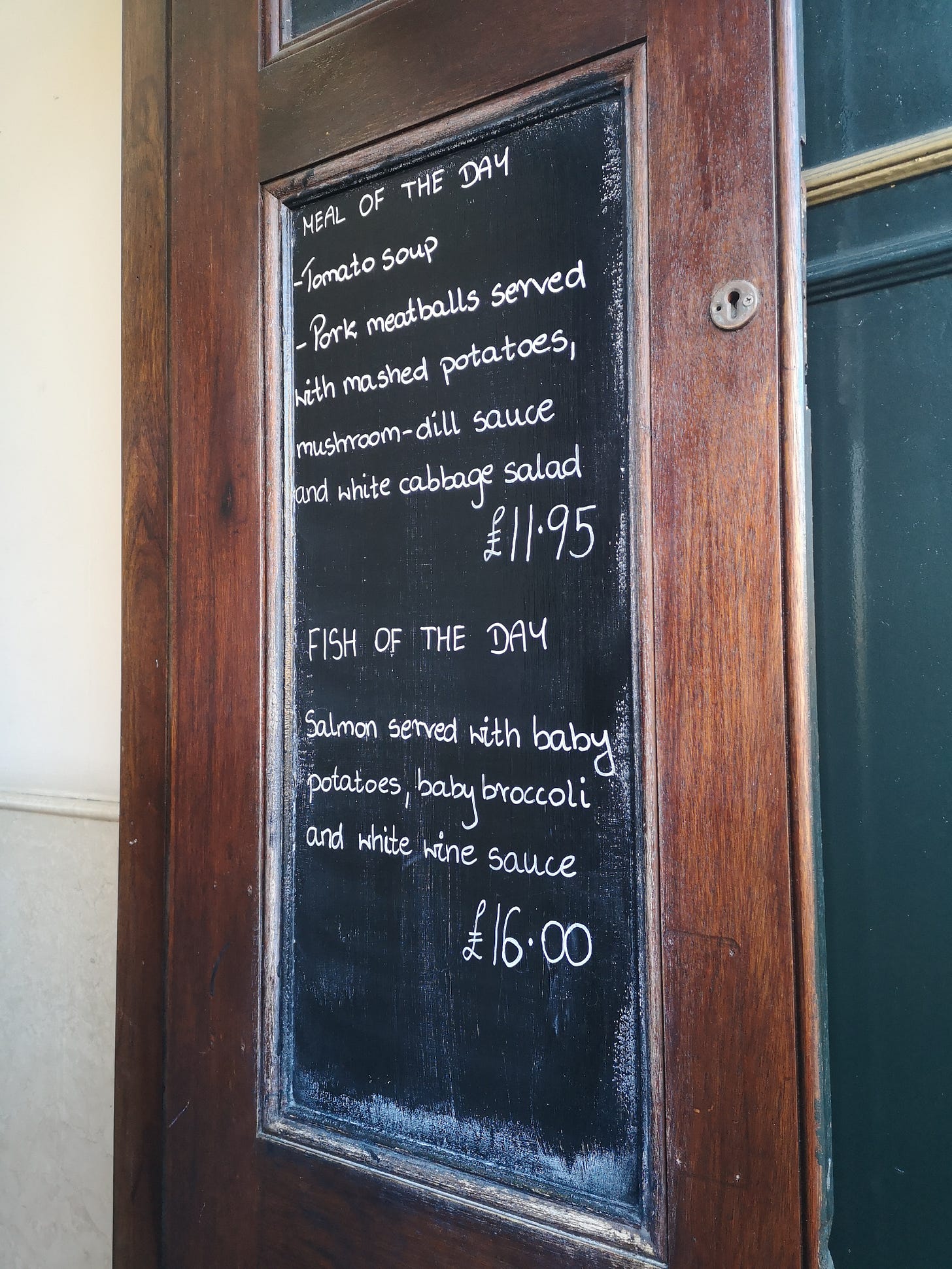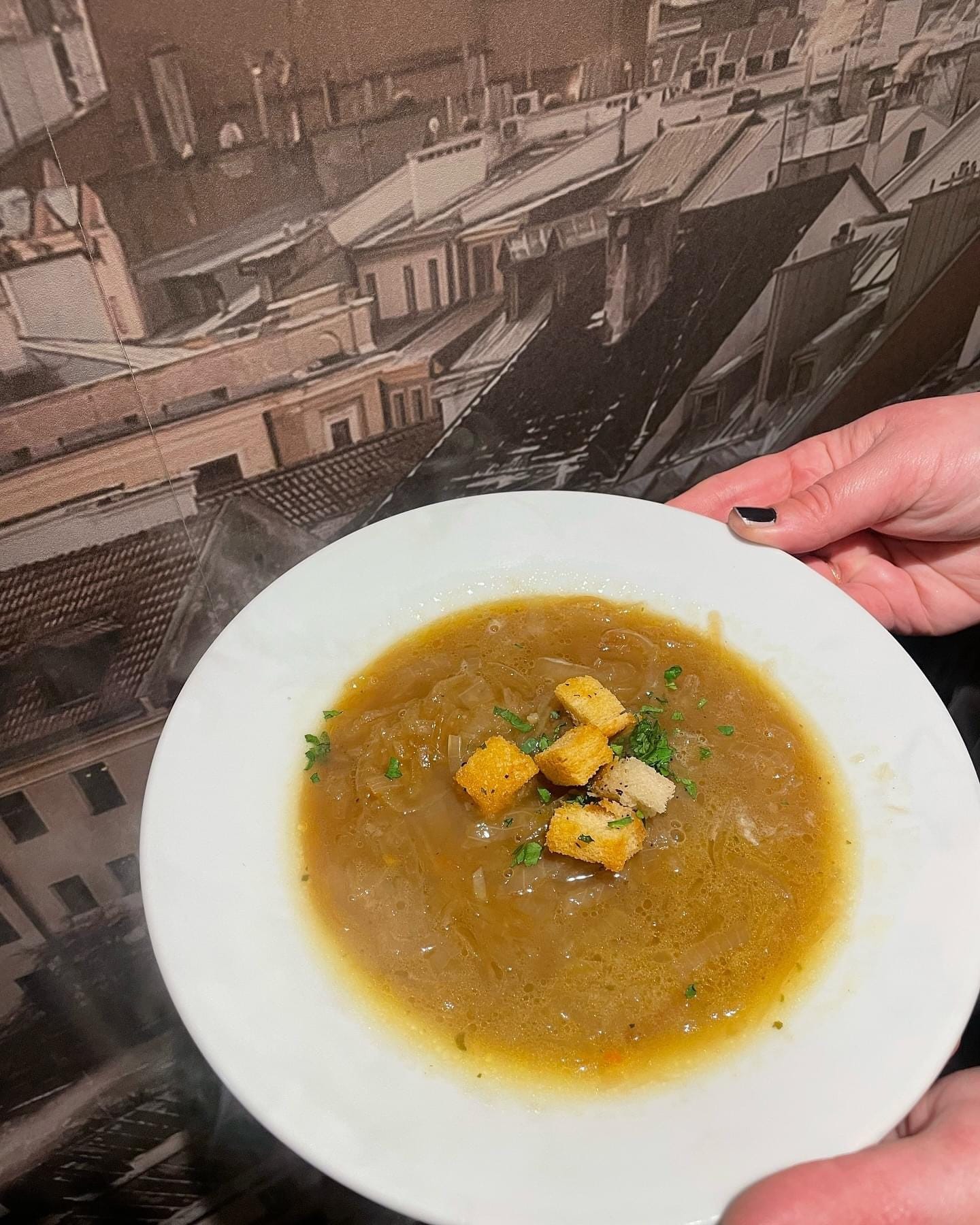A tale of two cities provides recipe for culinary success
How the Percy became an under-the-radar foodie hit in Leith
When you step inside the door of The Percy you are instantly transported from Edinburgh to the old town of Lublin in Poland, courtesy of giant photographic murals that fill the walls.
The restaurant and the adjoining Persevere Bar are run by Dorota Czerniec-Radowska (45) and her husband Konrad Rochowski (46) and Lublin is their hometown. Dorota proudly points out to me the places of significance. “That is the cathedral where my parents were married, and that building there is my old high school. I feel like I am home when I look at it.” The interior is a refined dining room, with high ceilings, elegant plasterwork and leather-lined dark mahogany booths.
Persevere is of course Leith’s motto. It captures a spirit that perfectly matches that of the vibrant melting pot community that lives here. The Percy and Persevere are one of the port’s landmarks, well-loved by Hibs fans, at the bottom of Easter Road. What many people walking past might not realise is that inside you will find some of the best Polish food to be found in the UK. The only giveaway is the chalked, ‘Specials of the Day’ menus, one in English and the other in Polish.
Dorota and Konrad moved to Edinburgh in 2002, part of a movement of young people who left Poland to see more of the world. “In Poland I was happy, I still stayed with my parents but that is how we live in Poland, that's normal. We were young people, who just wanted to see something different.” Now they cannot imagine living anywhere else other than Leith. We originally came here just for 2 years but now it's been 21 years. Scotland is my home; our son is in high school.”
Dorota and Konrad met as teenagers in their hometown, the ninth-largest city in Poland. “My high school was very close to his home, we would see each other around and one day we just started going out together." She was almost 18 and Konrad was only a few months older.
In Poland, Dorota had a good job working in a bank while Konrad worked as a florist. “I had always dreamed of visiting Scotland because I had watched Braveheart. I know that is stupid, but when I arrived my dream came true except for the Scottish weather.”
Konrad had travelled to Edinburgh a few months earlier and got a job as a kitchen porter for the hospitality business Caledonian Heritable. The company owns the Dome, in George Street, and the West End Brasserie amongst other venues. Dorota arrived a few months later.
She tells me: “In the beginning, it was really hard. I had quit a good job in a bank to come to Edinburgh where I ended up washing dishes as I didn’t speak very much English.” She first worked at Acanthus, the Central and then The Pear Tree.
The reason they moved to Edinburgh was because “Konrad was looking for some changes in his life, with more opportunities, which would allow him to make some money.”
“When I arrived in Scotland, it was a big step, I was only 21. I was excited to come because I knew Konrad was here and I felt very safe with him. But I changed my life upside down. I arrived in May, and I remember when I landed at the airport, in Poland it was hot, but it was so cold here people were still wearing their winter jackets.”
In May, 2004, Poland joined an enlarged European Union which allowed workers free movement, Dorota recalls: “That evening, everyone was so happy. When we first moved to Edinburgh you hardly heard any Polish voices but by the summer of 2004, I heard Polish voices everywhere. I was so excited.”
The city has welcomed thousands of Polish nationals as part of the European free movement of workers. The last census, in 2011, showed 12,820 Poles were living in Edinburgh. In the coming months, the results of the 2022 census will be published, showing the impact that Brexit has had on this part of the city’s population.
But Scotland has much older links with Poland. In the mid-15th century, Scottish merchants moved, traded then settled in Poland. By the 17th century, there was an estimated population of 30,000 Scots living in Poland.
It is usually forgotten that Bonnie Prince Charlie was half-Polish, the son of James Edward Stewart and Clementina Sobieska, granddaughter of the King of Poland.
During the Second World War, large numbers of Poles were billeted in Scotland, having fought on the side of the Allies in the defence of both Norway and France. In camps around Edinburgh around 17,000 Polish soldiers lived and many chose to stay here at the end of the war.
Today, you can see memorials commemorating these strong links around the city. Outside the City Chambers on the Royal Mile a statue of Second World War hero General Stanislaw Maczek sits on a bench. You can rub the shiny brass nose of the statue of Wojtek in Princes Street Gardens, the bear who served in the Polish military during World War II and then lived in Edinburgh Zoo.
Dorota and Konrad were among the first of a new generation of Poles who settled in Scotland and two of the first to work for Caledonian Heritable. “They trusted us and after many years working for them they asked us if we would like to run our place.” They jumped at the chance of becoming leaseholders for Caledonian Heritable and took over the running of The Ritz Bar and Grill, at the Gyle. Around nine years ago came the opportunity to move to Leith and take over the lease of the historic bar at the bottom of Easter Road.
When they moved in, the enterprising couple decided they wanted to make their mark by changing things in the kitchen. Dorata says: “It was very important for us both, we just put our heart into making the food special. We only use good quality products, and ingredients we get fresh deliveries every day.” They also turned the bar’s function room into a traditional Polish restaurant, which she believes has been the key to their success.
Their idea was to provide Polish people with a taste of home but also high quality food for people of any nationality. “We wanted to show typical Polish traditional food the kind that your mom would cook at home and get everyone to see and taste Polish food. Polish food is amazing. I know some Scottish people are afraid to try new things, but just come and try something different, we have a good variety of food for everyone.
“Our Polish bread comes from a bakery in Livingston, our Żurek soup is served with white sausage, which is made on site. The same goes for the Polish-style mince pastry, which is also made from scratch. Our head chef, Marcin Zielinski, comes from Gdansk, so the menu also features other regional recipes.”
The menu on the tables are printed in Polish on one side and English on the other. On it, you will find meat and vegetarian Pierogi, which is a traditional stuffed steamed dumpling, pork schab which is a flattened breaded pork chop served with mash and sour cabbage, red borscht, smalec and Baltic herring. You will also find consomme, a clear soup made from beetroot, apple, carrot, which is slowly simmered for hours, and always popular with diners. Dorota tells me that in Llublin, “you will hardly find a house that doesn't have consommé followed by a pork chop every Sunday.
“We want to keep this place as serving traditional homemade, comfort food, which was our idea from the beginning. I'm proud of where we are, we worked hard and now is the time to enjoy things, but we will still work hard for the future.”
The quality of the offering at Percy can be measured by some of its stellar Trip Advisor reviews.
“Excellent Polish cooking,” says one. “I have not tasted Żurek like this since my grandmother died.”
“The food was exquisite, some of the dishes were the best I have ever had,” says another. “For the record, I'm Polish born and raised. I was floored, did not expect this. The chłodnik soup, the herring, żurek... All to die for! Great service as well and unbelievable value for money,”
But the place is still very much a hidden gem, as Dorata agrees: “Some people still don't know about us.”
A lot of Polish people visit for lunch, but in the evenings their clientele is largely Scottish and from other countries. Many diners travel from across the city to eat here, and the Chinese community in particular appear to have taken them to their hearts. Dorota says: “We didn't expect that kind of response, to be honest.”
They currently employ around 18 full-time and part-time staff in the restaurant and bar, a mixture of nationalities, mainly Polish and Scots. Dorota says: “We are a big family, they all work hard. I'm here every day even if I'm not on shift. I love Scottish people, they have always been so kind to us, we always felt welcomed.”
It took around 7 years before the couple felt the business was in a good place. “But we still have to work very hard, in hospitality you just can't relax. It is always a challenge.” The toughest time was during the pandemic. The couple ploughed the money they received from the government grants back into the bar and restaurant, refurbishing the restaurant both inside and out.
“For the first couple of weeks, it was fine, but no one expected lockdown would last so long. My husband couldn't just stay at home, he loves to work, and he needed to do something. Konrad was here every day, just cleaning like it was a hospital. Thank God, we had savings because we still had to pay people wages before the furlough scheme kicked in.”
Now, the main challenges are the rising costs of running the business and the effects of the cost of living crisis. Asked how close things are to being back to normal, she replies, “We can't complain, we are busy, but January/February are always really tough months. On Sundays, we often have a queue of people waiting in line for us to open the door, it is our busiest day of the week.”
Despite the Brexit exodus, Edinburgh still has a sizable Polish community with at least four Saturday Polish language schools which go a long way to help people stay connected to their heritage. Dorota says: “You have to know your roots. My son has learned to speak Polish very well and has no problem communicating with his Granny. I think that is fantastic.
“I am glad we came to Scotland, but even though we have lived here for many years, I would never say I am Scottish. I am Polish and I'm proud to have this place and show and share with people what we have. The community here is amazing and friendly towards us. We love living in Leith, and we are Hibs fans so we are always busy on match day.”
If you need an excuse you might want to head to the Percy for a bit of culinary cultural research before Scotland’s 20204/25 UEFA Nations League match against Poland at Hampden on 5 September.



